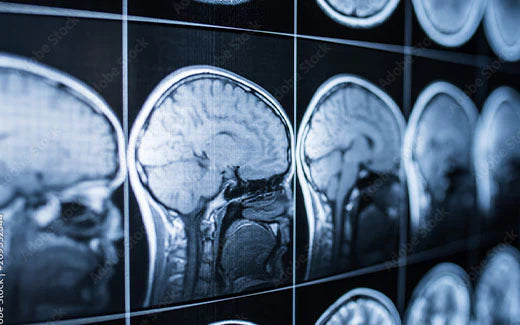What are the benefits of Magnesium?
How much time have you got? Magnesium works hard in almost every cell of the body. It is crucial to liberate energy from ATP and to make both DNA and RNA. It regulates calcium and vitamin D uptake and use across cells and bones. Its action on neurotransmitters can help improve mood, reduce anxiety and insomnia. Used worldwide to reduce blood pressure and support heart health, it’s also revered by sports people for the way it helps muscle recovery and endurance. Finally, it works as a catalyst for carbohydrate and lipid metabolism and supports optimal blood glucose levels.
What does the research say?

Magnesium is all about teamwork
It’s the team player that works behind the scenes to make things happen. It activates over 300 enzymatic reactions that run inside the body every single day, as well as being one of the 4 key electrolytes that regulate nerve and muscle building and function, keep the body hydrated, and balance acidity and blood pressure. There is a huge body of research collected over 200 years that detail the myriad ways that magnesium keeps us functioning and balanced.
How does magnesium work?
Essential cofactor
- Magnesium has 2 key working pathways. One is as an activator that allows so many biochemical reactions to happen. Without magnesium present, over 300 essential daily processes just won’t function as efficiently.
Electrolyte balance
- Secondly, it’s one of the 4 key electrolytes alongside calcium, sodium and potassium that need to work in concert to ensure nerves function properly; fluids and energy pass in and out of cells; muscles work efficiently; bones are built properly and the immune system stays primed for action.

Magnesium for sleep
Sleep and insomnia is where magnesium bisglycinate really comes into its own. It’s estimated that up to 50% of adults suffer from sleep problems at any one time. Magnesium glycinate aids the production of healthy levels of GABA, an amino acid that slows your brain and encourages you to wind down, drift off and stay asleep. It also works to support your response to stress, which also helps us sleep more easily.

Magnesium for energy
Magnesium is involved in every stage of both aerobic and anaerobic energy production. It’s needed to help break down carbohydrates and lipids; then once ATP is produced it’s mostly bound to a magnesium molecule. Because of this, all reactions that are dependent on ATP are also depending on magnesium. So without enough magnesium, our energy levels suffer.

Magnesium for digestion
Magnesium supplements are regularly prescribed for constipation. But it works throughout the digestive tract by relaxing the muscles, allowing for easier transit through the intestines. Magnesium also attracts water into the gut via osmosis, and it is this feature that can help relieve constipation.

Magnesium for muscle recovery
One of the common signs of a possible magnesium deficiency is muscle cramps, soreness and DOMS (delayed onset muscle soreness). The way muscles work is that calcium stimulates contractions, and magnesium stimulates release. Magnesium works specifically to reduce calcium uptake, so taking it after exercise can help muscles relax and recover, reducing the chance of soreness or cramps, and allowing you to work out more consistently.

Magnesium for mood
This is to do with the interaction with calcium again. Magnesium regulates the amount of calcium flow in the neurons of the brain, in turn helping to regulate nitric oxide production. If there isn’t enough magnesium to fulfil the brain’s needs, the neurons can be damaged, which can show up as depression. This is why magnesium treatment is suggested to be effective in treating major depression resulting from intraneuronal magnesium deficits.

Magnesium for heart health
Team player time again. Magnesium works by transporting the other key electrolytes, including potassium and calcium into the nerve and muscle cells of the heart. Magnesium is key for maintaining good nerve signals and regulating the all important heart contractions. It’s so important that many cardiologists suggest that having enough magnesium can significantly help prevent heart disease.

Magnesium for blood pressure
Over 10 randomised scientific studies have shown that taking magnesium consistently over at least 3 months, can significantly reduce blood pressure in people with diagnosed hypertension. The reason is magnesium’s ability to stimulate the blood vessels to relax and work to balance the other electrolytes that cause contractions. By the way, the best results were found when magnesium supplementation was combined with a healthy Mediterranean diet, full of potassium rich veggies.

Magnesium for brain health
Magnesium plays an essential role in sending electrical signals whizzing around the neurons in the brain. It also has a protective role against neuronal cell death because it regulates the calcium channels and keeps the other electrolytes in balance. Because of this, there is a lot of scientific interest into magnesium’s effects on everything from migraines to Alzheimer’s.

What is the best way to take Magnesium?
There are many different types of magnesium supplements on the market. Some, like magnesium oxide and citrate, are not well absorbed by the body. Magnesium bis-glycinate has been shown to be very well absorbed and tolerated with very few side effects. It can be taken at any time of day and our liposomal form mixes really well with water to make a truly refreshing and energy boosting drink. Some people enjoy taking magnesium before bed to aid restful sleep, but we’re not fussy.

Is Magnesium suitable for everyone?
Anyone with diabetes, gastro-intestinal disease, kidney disease or heart disease should not start magnesium supplements without talking to their doctor first. Pregnant and breast-feeding women, or anyone on a long term medication, especially diuretics, heart medications or antibiotics should also check. Signs of a magnesium overdose include nausea, diarrhoea, low blood pressure, muscle weakness and fatigue.
FAQs
Please read our FAQs page to find out more.
How much magnesium is in each sachet?
Each sachet contains 1500mg of magnesium bisglycinate, with an impressive 200mg of active magnesium per sachet.
What are the ingredients?
Magnesium Zooki is sugar free, dairy free, gluten free, soy free and contains zero artificial ingredients. To see the full list, please see the individual product pages and click the "Ingredients and info" drop down placed just below the price of the product.
What is Magnesium?
Magnesium is an essential mineral found naturally in many foods and available as a dietary supplement. It plays a vital role in various physiological functions, including energy production, bone health, and maintaining normal nerve and muscle function.
How much magnesium should I take?
Take one sachet daily, either straight from the sachet or add to water, juice, yoghurt and fruit.
Can I take Magnesium Zooki if I'm pregnant or breastfeeding?
We always recommend people who are pregnant or breastfeeding check with a medical professional before they take any new dietary supplement.
How does Magnesium Zooki differ from other magnesium supplements?
Magnesium Zooki contains magnesium bisglycinate, a form of magnesium which is better absorbed than other high street magnesium supplements which tend to use magnesium oxide or magnesium citrate.
Due to the increased absorption of magnesium bisglycinate, it is also less likely to cause loose stools - which is a common side effect of magnesium citrate and magnesium oxide supplements.
And just like all Zooki products, we've wrapped the magnesium in lipids to increase the transport and absorption of magnesium around the body.
Is Magnesium Zooki free from gluten, dairy, soy, alcohol, sugar?
Magnesium Zooki is free from gluten, soy, dairy and alcohol.
Is Magnesium Zooki vegan friendly?
Magnesium Zooki is perfectly suitable for vegetarians and vegans alike.
Shop Zooki Magnesium

Meet the author...
Sarah Carolides is one of the UK's top functional medicine and nutrition specialists with over 20 years experience, listed by Vanity Fair as one of 'The A-List people to know in London.'




